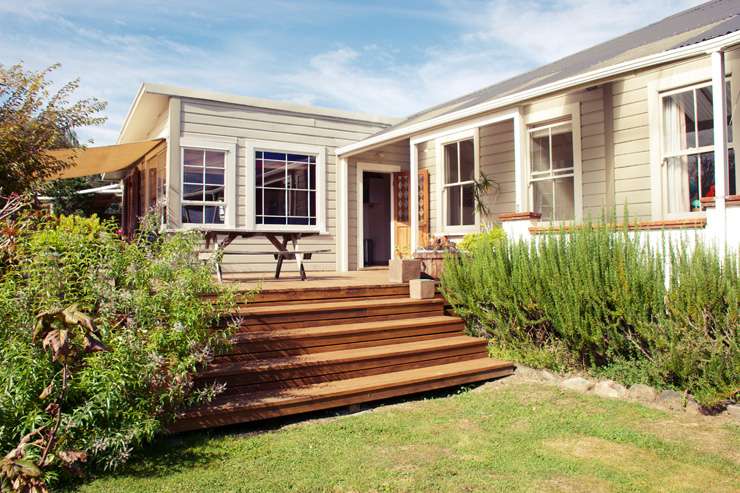The best time to sell your house depends on where we are in the market cycle, the season and, of course, the reason why you are selling.
Why do you want to sell your house?
There are lots of reasons Kiwis choose to put their home on the market to sell: outgrowing their current property, a change in life circumstance or even just a desire to move to somewhere new. Here are some of the most common reasons:
- Moving jobs. If you’re climbing the career ladder, you may need to move for job opportunities. If it’s a permanent relocation, it might make sense to sell your existing home and buy afresh in the new location.
Start your property search
- Getting married or remarried. If you’re tying the knot, your living arrangements might be changing. With re-marriages in particular and blended families, people often need a bigger home for all the children. Starting or growing a family. The home that suits you as a single or childless couple might be very different from a family home suitable for children. Starting a family is often the catalyst to move from an apartment or flat to a home with a garden near good schools.
- Downsizing. Once the children have flown the nest, parents sometimes want to move into a smaller home. This could be to release equity stored in the property or to reduce the maintenance and upkeep required.
- Approaching retirement. Planning for retirement might involve moving to a new location or buying a lower maintenance home.
- Releasing equity. People sometimes downsize to unlock some of the capital in a home to live on in retirement.
What is the best season to sell your house?
Spring is traditionally the best season to sell a house. That’s not to say that other seasons don’t work. With fewer properties on the market in autumn and winter, the competition is reduced and buyers may not be able to wait. Make sure you understand local real estate market conditions before making a decision. Whatever the season, take the time to prepare your home for sale so it looks its best.
Spring: Spring is a good season to sell your home. With the weather warming up, there’s more sunlight, and gardens spring to life, a home can be more appealing to buyers. On the other hand, if there are more properties on the market, buyers might be more picky.

Selling when the weather is good and the garden looks great can help make your home attractive to buyers. Photo / Getty Images
Summer: Homes look good in summer when the days are longer and there’s more natural light. While buyers might be pre-occupied in the run-up to Christmas, they often start the new year with the desire to move and have more time for house hunting. Baches and cribs sell particularly well in the summer. Potential buyers often browse real estate agents’ windows where they are staying at holiday homes. Always make sure you keep plants and lawns watered during the summer marketing period.
Autumn: In autumn buyers are often motivated to get into their new home before winter. There is a certain charm in falling leaves, providing you keep your gutters, garden and paths clear and clean. In slow markets, the number of properties hanging over on the market from spring and summer may increase, which means more competition.
Winter: The great advantage of winter is the lack of competition. Real estate agents will have fewer properties on their books, so be keen to sell their listings. Buyers who need to move have a smaller pool of properties to choose from. The properties that sell best in winter are those with good natural light and great insulation. If the property is dark or damp, winter is likely to accentuate that.
What is the property cycle?
How the property cycle affects timing. Property markets go in cycles according to supply and demand. Think of it as a clock with the boom at 12pm, followed by a slide at 3pm, the bottom at 6pm, a rising/hot market at 9pm and back to the top of the market at 12pm. If you don’t need to sell within a certain timeframe, you might want to wait for the boom. It is, however, notoriously difficult to time the top of the market. If you’re rebuying in the same market, then timing the sale isn’t as important.
Buyer’s and seller’s markets. Buyer’s and seller’s markets are about supply and demand. A buyer’s market is one where the number of properties for sale exceeds buyers. Buyers may be able to negotiate hard in this situation. In a seller’s market there are fewer properties for sale. This means buyers are competing and may bid property prices up.
How long does it take to sell your house?
Just how long it’s going to take to sell your home depends on a number of factors including time of the year, whether it’s a seller’s or buyer’s market, and the sales method you use. The REINZ monthly property report records the median number of days to sell a property by a real estate agent. This is typically between 30 and 40 days, with some regional differences. It takes time to prepare a property for sale, which is not included in these figures.

The length of time your home is on the market is likely to be influenced by whether or not the market favours buyers or sellers. Photo / Fiona Goodall
Preparing a house for sale
Preparing a house for sale can take months. Even once you’re ready to list, expect to spend a month choosing an agent, signing a listing agreement, having the property staged, getting photos and videos taken, and marketing material prepared. Once the signboard is up, the marketing period is usually four to six weeks. If the home is listed for negotiation or a deadline sale it can be sold at any time from day one. If it’s being sold by auction or tender, the sale will mostly take place at the end of the marketing period, providing there is a buyer. Once the sale and purchase agreement is signed and the offer goes unconditional, a typical settlement period before the money changes hands and the keys are handed over is three to six weeks.
The common factors that affect speed of sale include the desirability of the home and the area, availability of mortgages, property condition, price, method of sale, whether it’s a buyer’s or a seller’s market, the number of properties on the market, and any issues the buyer’s lawyer finds with the LIM (land information memorandum) or property title.
How to sell your house quickly
If you want to sell your home more quickly take these steps:
- Declutter and clean the home
- Choose an agent quickly
- Price it competitively to meet the market
- Stage it and market it to appeal to a wide range of buyers, and
- Set a short settlement period.
Read part three of our Home Sellers Guide: The different ways to sell a house









































































